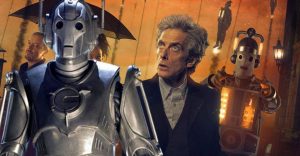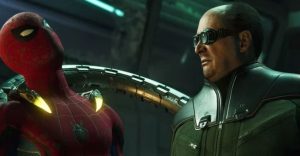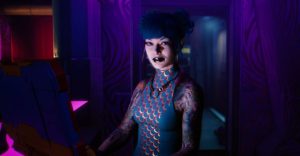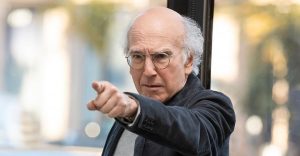10 Quotes That Prove Batman Is The Best Justice League Member In The DCEU
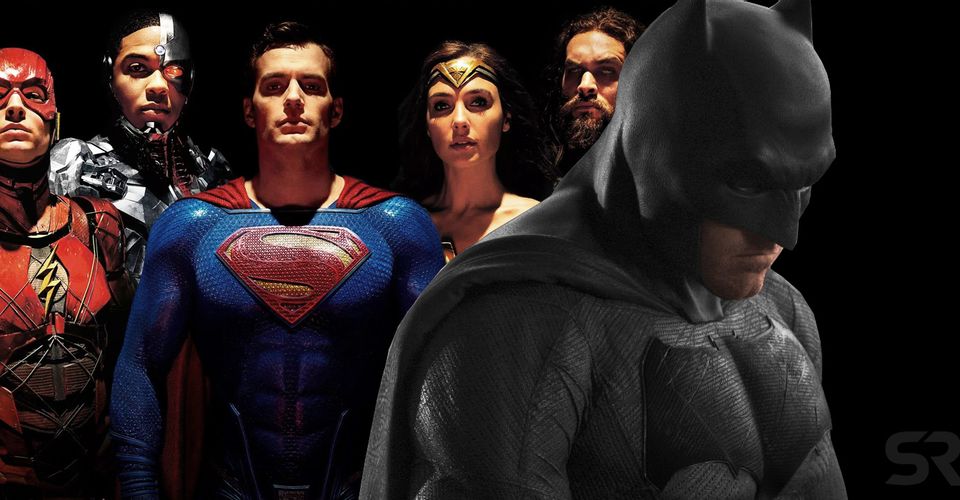
DCEU’s Batman has been more layered and appealing than most cinematic versions of the caped crusader. For starters, DCEU made some room for basic liberties in his characterization. Since the cinematic universe didn’t have to begin with an origin story and could feature a worldly, more astute vigilante, DCEU’s Batman seemed more self-aware and in touch with human miseries.
In fact, in Justice League, Batman’s optimism shines through, which makes him more intriguing for his comic book fans who have only known him by his crime-fighting antics or his trauma. And this balance in character design reflects in his words and his actions. In many ways, this dichotomy makes him a more capable member of the Justice League.
On Who Is Really In Charge
“Everyone This Is Alfred. I Work For Him.”

Zack Snyder’s Justice League finally pays Alfred his dues and does so quite pragmatically. Alfred has been so much more than Bruce’s man Friday; he has been crucial to Batman’s double identity. In fact, Bruce could not have seamlessly kept his vigilantism a secret without his help. However, in Batman films over the years, Alfred is depicted in a restrictive way. Even in Nolan’s Batman films, Alfred is depicted as a worried guardian.
In the Snyder cut, Alfred and Batman work together almost like colleagues, their arrangement is evident and Alfred is a functional part of his operation. It only helps when Batman introduces Alfred to the Justice League as his employer because though funny, it’s not too far from the truth.
On Strength In Unity
“Divided We Are Not Enough.”

DCEU’s Batman is significantly different from Christopher Nolan’s version who wasn’t exactly a team player. Batman has never been a total loner since he has always been able to reach out to reliable allies but he certainly exhibited solitary tendencies. In DC Comics, of course, Batman is the one who assembles the Justice League as well as the Outsiders.
Bruce Wayne and MCU’s Tony Stark are not very different. In a way, they are both the architects of a league of superheroes and have had to rise to the occasion more than once. In Justice League, it was Bruce who sought out the other heroes since he identified how dire the threat was and this line established him as a pack-builder.
On Vigilantism
“We’re Criminals, Alfred. We’ve Always Been Criminals.”

For long-time readers of Batman this moment from Batman v Superman: Dawn of Justice really hits home. The fact that Bruce is so acutely aware of what he does and what his actions represent is something that the DCEU has tried to explore. So, DCEU’s Batman is more layered than the comics because of the dualities he balances within himself.
He resorts to extreme measures to fight crime and in a different world what he does would be considered unethical too and Bruce seems to acknowledge this.
On Evening The Odds
“He’s Never Fought Us. Not Us United.”

Zack Snyder’s Batman was significantly different from Justice League‘s original Batman. Snyder’s Batman is grounded and a realist. He seems to be aware of his strengths, while the Justice League‘s Batman is somewhat goofy, bumbling and even quite out-of-touch at times. “I don’t care how many demons he’s fought in how many hells. He’s never fought us. Not us united,”
Bruce tells his teammates, referring to the danger Steppenwolf and Darkseid posed. This moment was definitely momentous for DCEU since it established Bruce as a terrific leader.
On The Red Cape
“You Do When It’s This Red Cape. This Red Cape Charges Back.”

There’s an interesting moment in Snyder’s Justice League where an anxious Alfred warns Bruce against going overboard with his plans. Pairing a less indulgent version of Alfred with an optimistic Batman was a great move on Snyder’s part and it brought out the camaraderie better. Alfred basically warns Bruce against talking to Lex Luthor and tells him that his guilts have become his reasons. He tells Bruce that it’s not wise waving the red cape at the charging bull if it can’ be brought down.
“You do when it’s this red cape. This red cape charges back,” Bruce tells Alfred. Bruce’s trust in Superman and also the fact that he was working solely on faith, despite having assembled a team of superheroes makes him a curiously grounded commander.
On Worthless Promises
“Twenty Years In Gotham, Alfred; We’ve Seen What Promises Are Worth.”

For Batman loyalists, this line from Batman v Superman manages to spotlight Batman as Gotham’s own. He almost sounds like a common citizen and not a billionaire with a pool of resources. “Twenty years in Gotham, Alfred; we’ve seen what promises are worth. How many good guys are left? How many stayed that way?” he says in reference to Superman.
This sentiment connects with the quote ‘you either die a hero, or you live long enough to see yourself become the villain,’ which is almost iconic in the Batman canon and makes the film’s quote all the more powerful.
On His Real Superpower
“I’m Rich.”

No one really expected Batman to be so cheeky about his lack of superhuman strengths. When Flash asks him what his superpowers are he simply tells him that it’s his wealth. It’s funny because it’s not entirely true; Batman’s biggest strengths are his sense of morals and his farsightedness.
Of course, he’s also an excellent strategy-maker and a true visionary, technologically and otherwise. His multi-faceted talents make him one of the most daunting superheroes in pop culture. So, in a way, Bruce acts modest when asked about his powers which is refreshing.
On Finding A Limit
“I’ve Been Dead Inside A Long Time, But Even I Have A Limit.”

In the Snyder cut, Bruce is older and has a better grasp on his rage and angst which also makes him a better vigilante. So when the joker antagonizes him and provokes him, Batman expresses his inner doom which is so familiar to the superhero’s fans. Batman has famously been a cynic, and yet his vigilantism in DCEU isn’t anchored by despair but by hope.
When he tells Joker he was dead inside, it’s a rare glimpse into how he has transitioned emotionally.
On Being Real
“I’m Real When I’m Useful.”

This line succinctly sums up Batman’s idea of vigilantism. When Cyborg implies that he considered Batman to be a myth, Bruce tells him Batman is real when he’s needed, which is quite accurate. The reason Batman chooses to hide his identity is that it helps him fight crime better.
The possibility of a dark, bat-like figure became a symbol of fear in the crime-infested Gotham. It also plays into the ‘silent guardian’ motif that has been popularised in Nolan’s movies.
On The Goodness Of Man
“Men Are Still Good.”

Bruce’s optimism has been quite crucial to Batman’s depiction in DCEU. Though Batman has always been a keeper of order, he doesn’t come across as someone who has high hopes for humanity. In DCEU, in spite of being world wary, Batman clearly still has faith in the goodwill of men, which shines through.
In Justice League, Bruce’s attitude is a direct contrast to Diana’s because she has witnessed the downfall of humanity many times over several centuries. “Men are still good. We fight, we kill, we betray one another, but we can rebuild. We can do better. We will. We have to,” he tells her. This humanizes him because they don’t allude to any power but talk about the promise of human goodness.
About The Author












